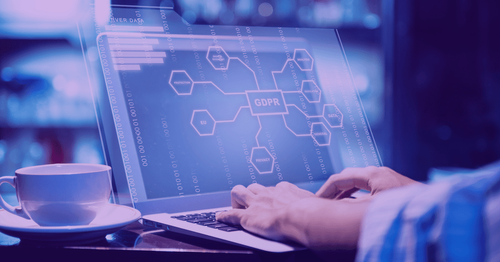The fintech revolution: How are financial institutions preparing to protect consumer data?
Cybersecurity is THE topic, but protecting data is even more relevant for financial companies. Here's our take on the fintech revolution.

The world is going through a significant fintech revolution, with technology and innovation pushing through incredible solutions in the financial sector. In many countries, especially the UK, India, Brazil, and the US, even governments are adapting themselves to regulations to promote open banking.
For the consumer, this opens up numerous possibilities. It makes it easier for clients to move around in search of the best solution for their needs - no longer attached to traditional banks but having a choice to contract services from a diverse pool of offers. With open banking, data and information flow easily between the financial players precisely to allow consumers to have more freedom to manage their money, their way.
However, as infosec people know, whenever we hear of "free information flow", we get shivers. Our first thought always revolves around data protection. But, of course, the more the information seems to be "free", moving around between different fintechs and banks, the more vulnerable it is - or at least the larger the attack surface.
Fintechs are top targets for cyberattacks
As expected, attacks are on the rise against the financial sector, according to a VMware report.
A surprising 63% of financial institutions surveyed in the VMware report said they'd seen an increase in destructive cyberattacks targeting their organisation. The number is 17% higher than the year before.
Nearly 3 out of 4 respondents of the survey said they'd been hit by at least one ransomware attack. What's more, 63% of those ended up paying ransom.
But the sector is also prioritising cybersecurity as threats increase
Banks and fintechs are fighting back, though, increasing their investments in cybersecurity and artificial intelligence to protect data better. A research in Brazil showed that 100% of the country's lenders want to purchase these technologies in 2022.
This data is part of a worldwide trend of cybersecurity investments soaring, with venture capitalists raising billions of dollars to invest in the space. The investment is absolutely necessary for companies to simply keep up - let alone stay one step ahead - with the new threats cybercriminals bring on a daily basis.
The VMware study showed that most companies intended to make a 20% to 30% increase in their cybersecurity budget for the year, with many investing in solutions such as extended detection and response (XDR).
The survey also showed that other investments were to be made in workload security, mobile security, threat intelligence, and managed detection and response (MDR).
Many tools that can and should be used to protect data. For example, in the financial sector, as we deal with millions of consumers' private and sensitive information, working with cryptography is necessary. It ensures that even if data is breached, it cannot be read and, therefore, cannot be used.
However, as databases reach millions and perhaps even billions of people, technology needs to be safe, fast, and scalable. Like Vaultree's technology.
Talk to our team and book a demo to see how you can protect your consumers' data by using the best real-time searchable and fully homomorphic encryption technology out there.
More from our blog
Vaultree: Bulletproof Your Business from GDPR Breach Disclosures and Fines
Transform compliance into a significant competitive advantage - business challenges now become opportunities for growth and innovation
How Data-In-Use Encryption Supports Organisations with GDPR Compliance
Data breaches are a major concern for organisations. From hacking to phishing and insider threats, the leak of sensitive data has severe consequences, not only in finances. We're talking about reputat
Cybersecurity in 2023: What can we expect?
It's a new year, but how will the infosec industry respond with cyberattacks on the rise?


